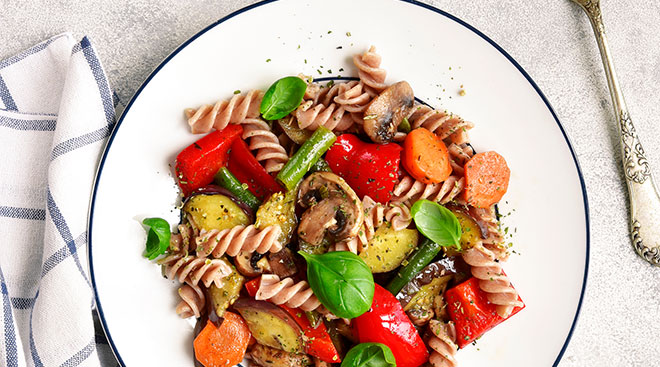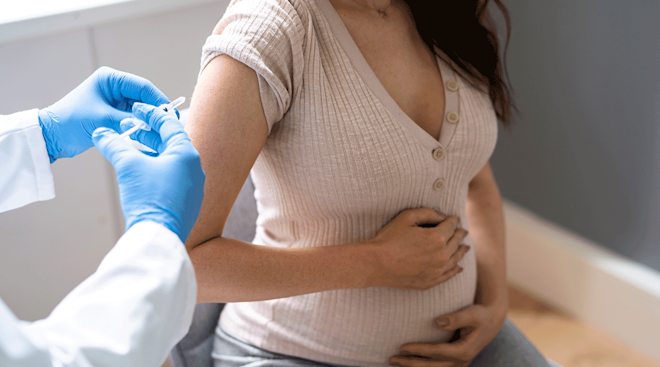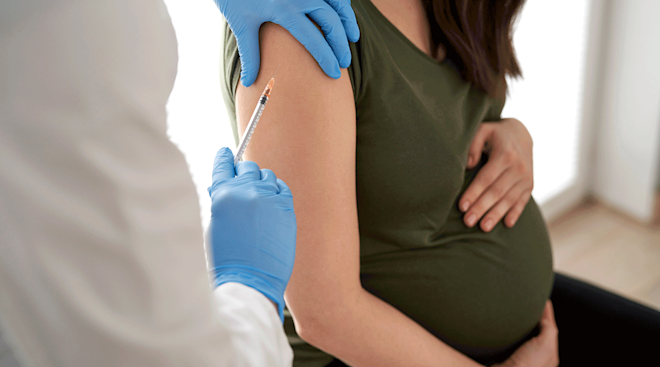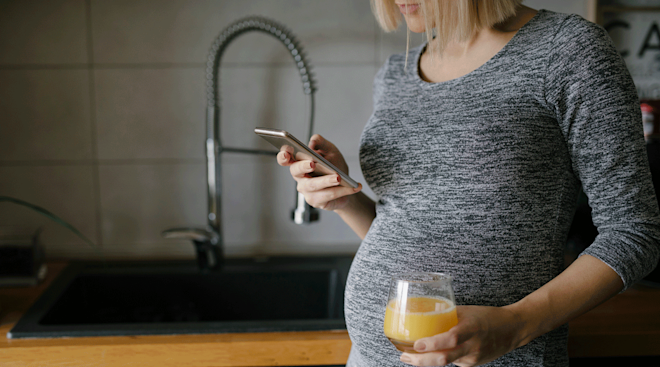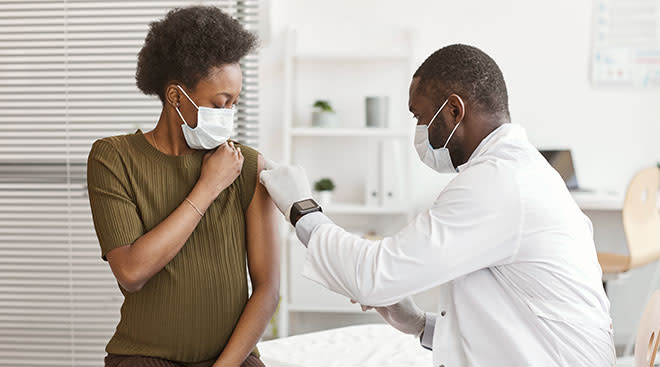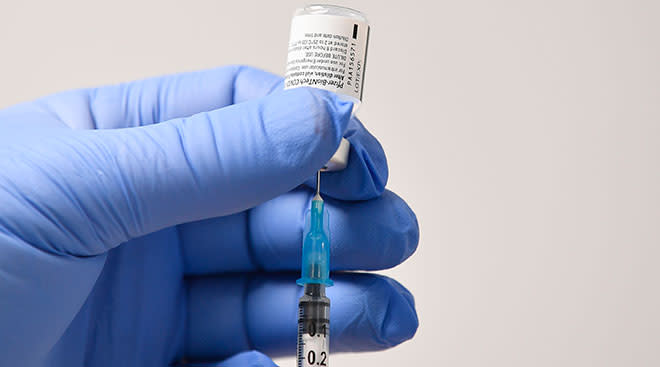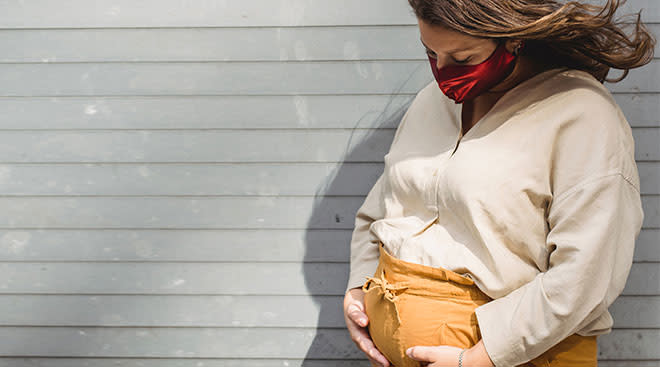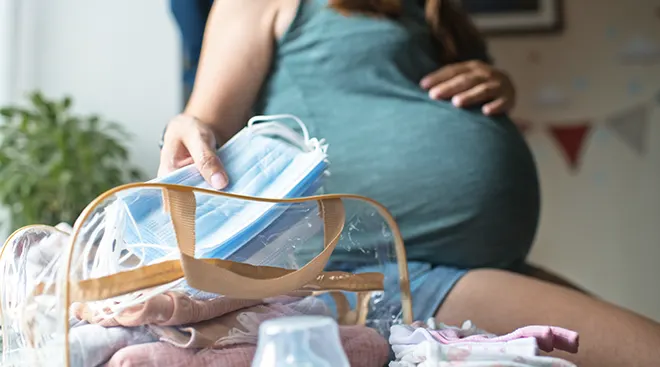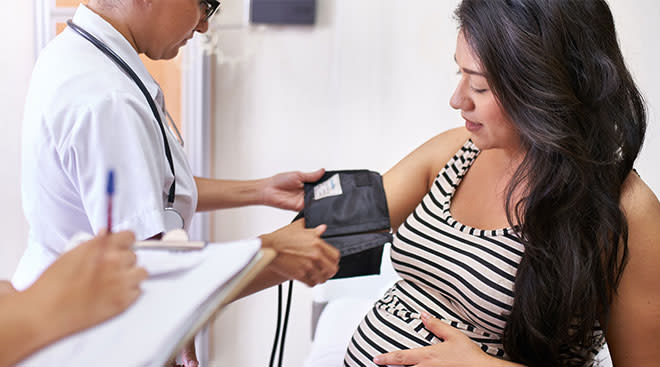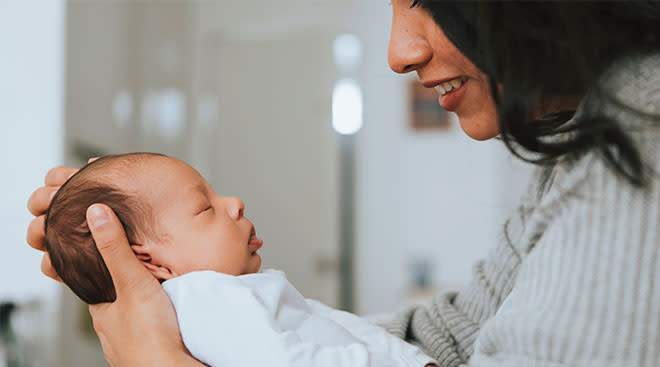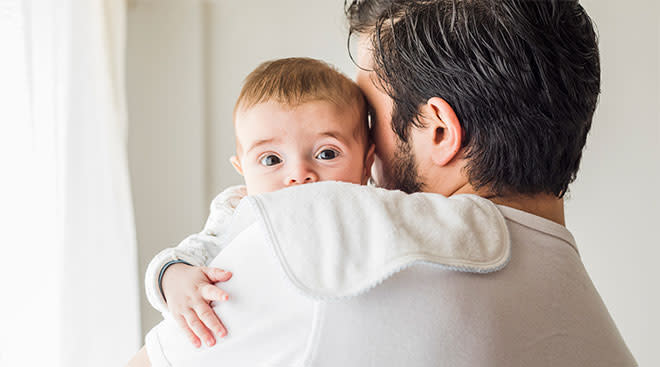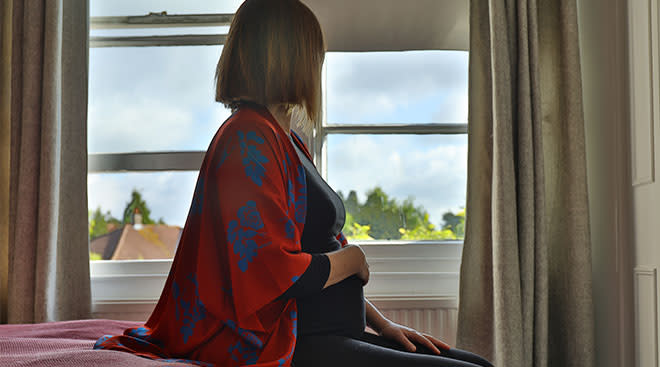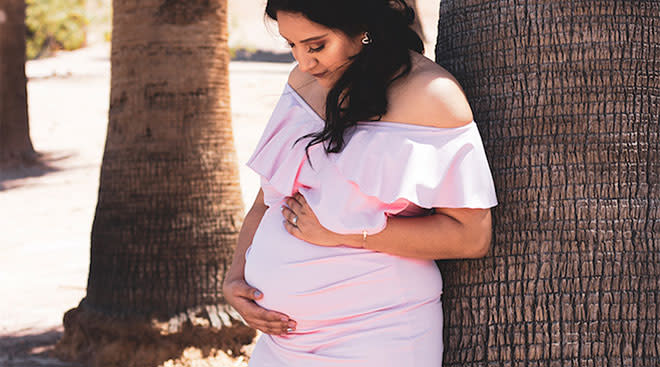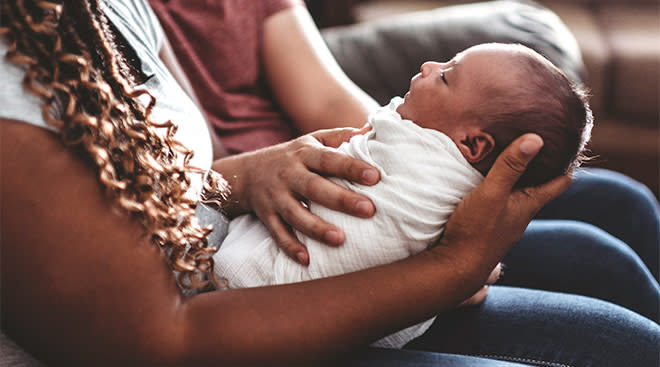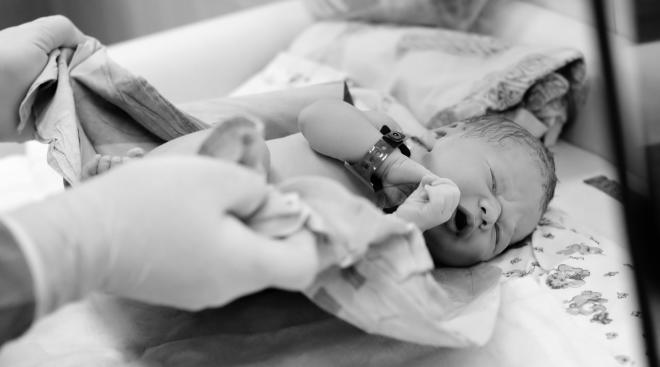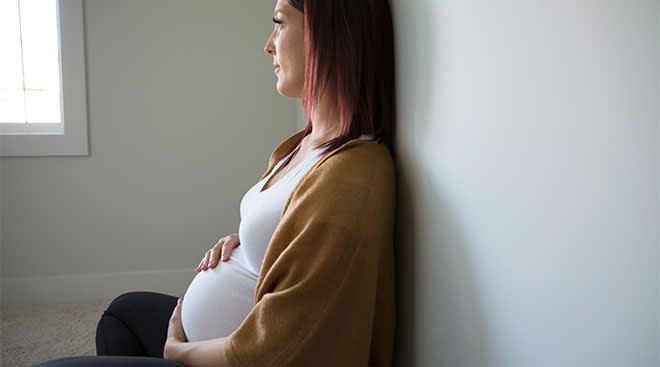Extra Choline May Help Moms-to-Be Protect Baby From COVID-19
Researchers are slowly learning more about COVID-19 and the effects the novel virus can have on pregnant women and their babies. Now, a new study is looking at the effects of choline, a vitamin B nutrient found in a variety of foods and dietary supplements that plays a big role in fetal brain development, and whether it can mitigate the negative impacts of severe respiratory viruses in pregnancy.
While the study is focused on broad-term respiratory viruses, researchers hope it can help them gain insight into the effects of COVID-19. “The Centers for Disease Control and Prevention (CDC) predicts that COVID-19 will impact fetal brain development like other common corona respiratory viruses,” Robert Freedman, MD, professor of psychiatry at the CU Anschutz Medical Campus and lead researcher, stated in a press release.
The study, conducted by researchers from the Departments of Psychiatry and Obstetrics and Gynecology at the University of Colorado Anschutz Medical Campus and published in the Journal of Psychiatric Research, looked at the impact prenatal choline levels could have on protecting fetal brain development should the mother get a viral respiratory infection in early pregnancy. They measured choline levels at 16 weeks pregnant in 43 mothers who had gotten common common respiratory viruses during the first 6–16 weeks of pregnancy and 53 mothers who had not. When their babies had reached 3 months of age, the moms were asked to complete the Infant Behavior Questionnaire-Revised (IBQ-R), which “assesses their infants’ level of activity (Surgency), their fearfulness and sadness (Negativity), and their ability to maintain attention and bond to their parents and caretakers (Regulation),” the study stated.
The researchers looked at the effects on behavior in infants whose mom had contracted a respiratory virus through the infants’ IBQ-R Regulation dimension. Typically, a lower IBQ-R Regulation at one year old can be associated with issues in attention and social behavior issues later on in childhood, including decreased reading readiness at 4 years old, problems in concentration and issues with conscientiousness in kids through 7 years old.
Researchers found that babies of moms who had a respiratory virus but higher choline levels had better 3-month IBQ-R scores, when compared to infants of mothers who had viral infections and lower choline levels. Often choline levels that properly protect the fetus require the mom-to-be to take dietary supplements. However, researchers believe higher prenatal choline levels may help mitigate the virus’ impact on the fetus.
“It’s important for the healthcare community, and soon to be mothers, to be aware that a natural nutrient can be taken during pregnancy, just like folic acid and other prenatal vitamins, to protect fetuses and newborns from brain development issues. Later on in life, these development issues can lead to mental illness,” Freedman said.
Camille Hoffman, MD, associate professor of obstetrics and gynecology and a maternal-fetal medicine specialist at the CU Anschutz Medical Campus, also added, “Previous pandemics have resulted in significantly increased levels of mental illnesses including schizophrenia, autism spectrum disorder and attention deficit disorder in the offspring. However, since data from COVID-19 itself will not be available for years, we’re hoping our study findings will provide valuable information for soon to be mothers on the importance of taking choline supplements daily during pregnancy.”
It’s important to note that this study is a small one, and researchers don’t yet fully understand the effects of COVID-19. As a mom-to-be, before taking any kind of additional supplements, it’s important to check with your doctor. For more information, check out this article and speak to your doctor about any concerns you may have.
Please note: The Bump and the materials and information it contains are not intended to, and do not constitute, medical or other health advice or diagnosis and should not be used as such. You should always consult with a qualified physician or health professional about your specific circumstances.
Navigate forward to interact with the calendar and select a date. Press the question mark key to get the keyboard shortcuts for changing dates.

































